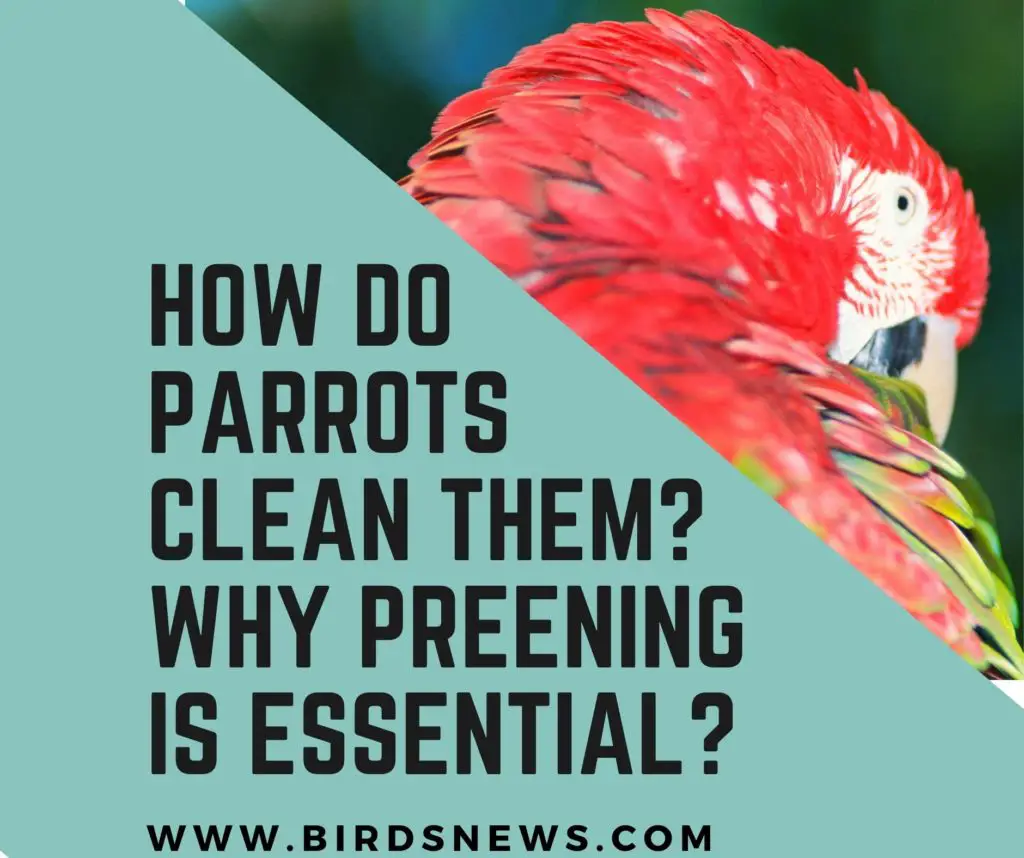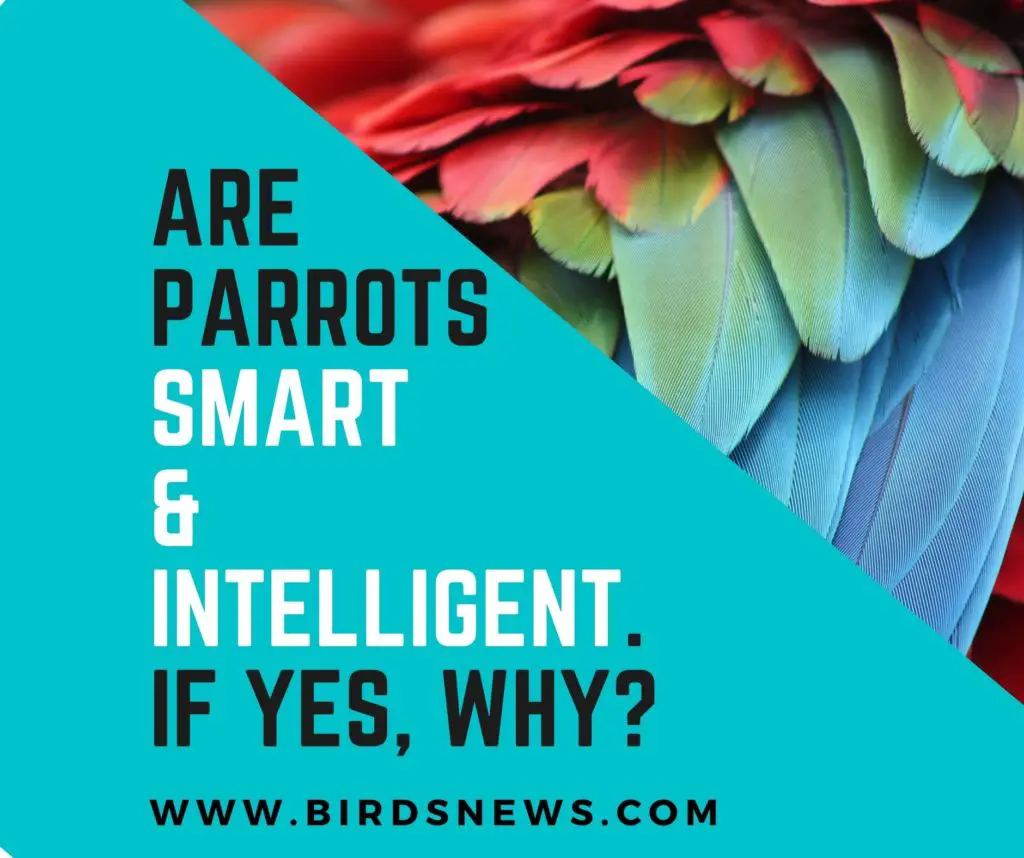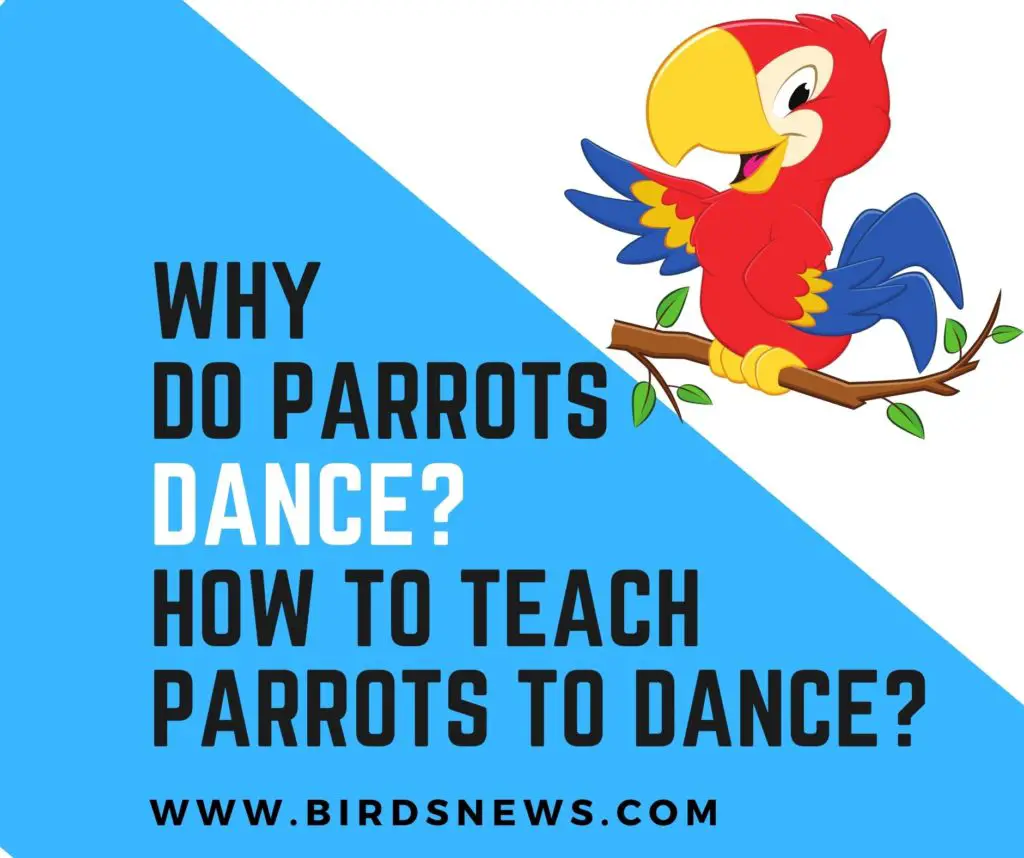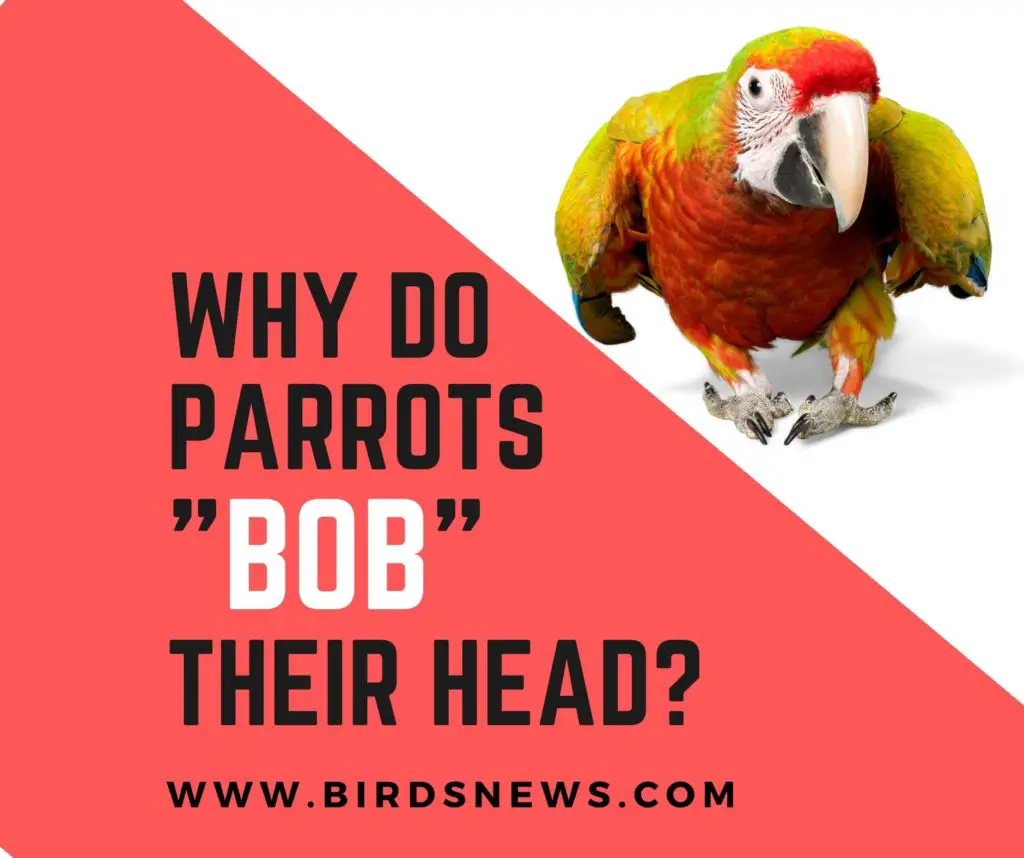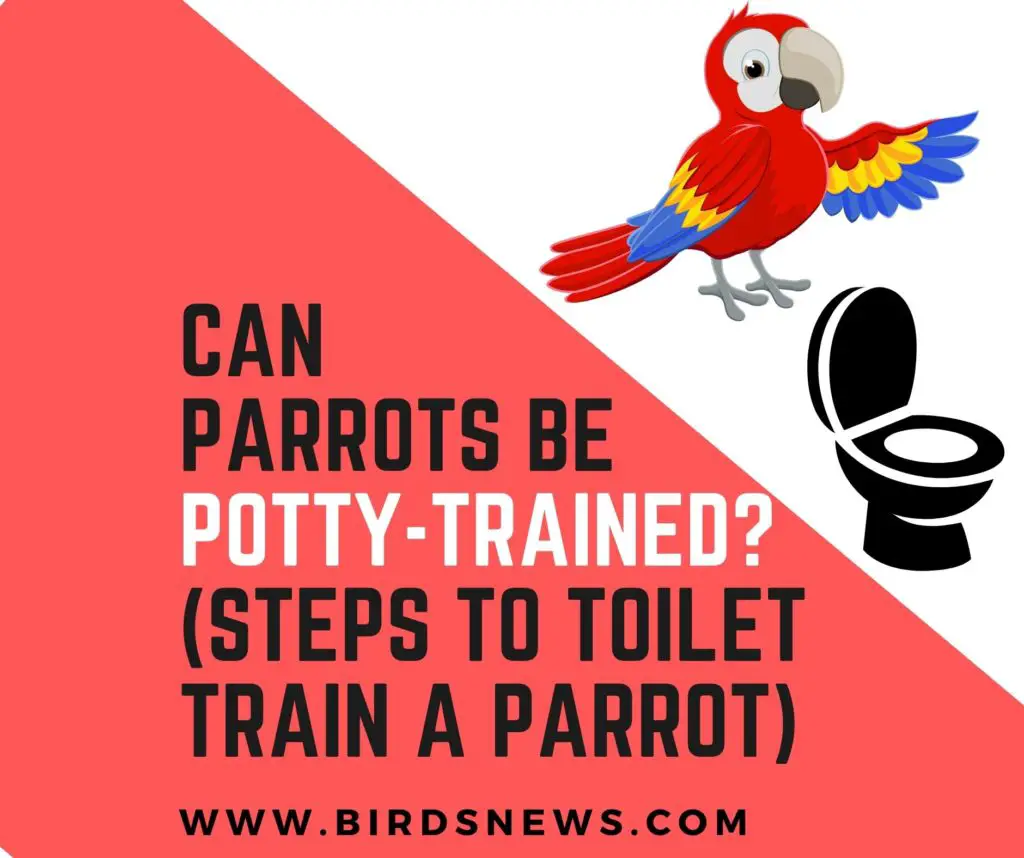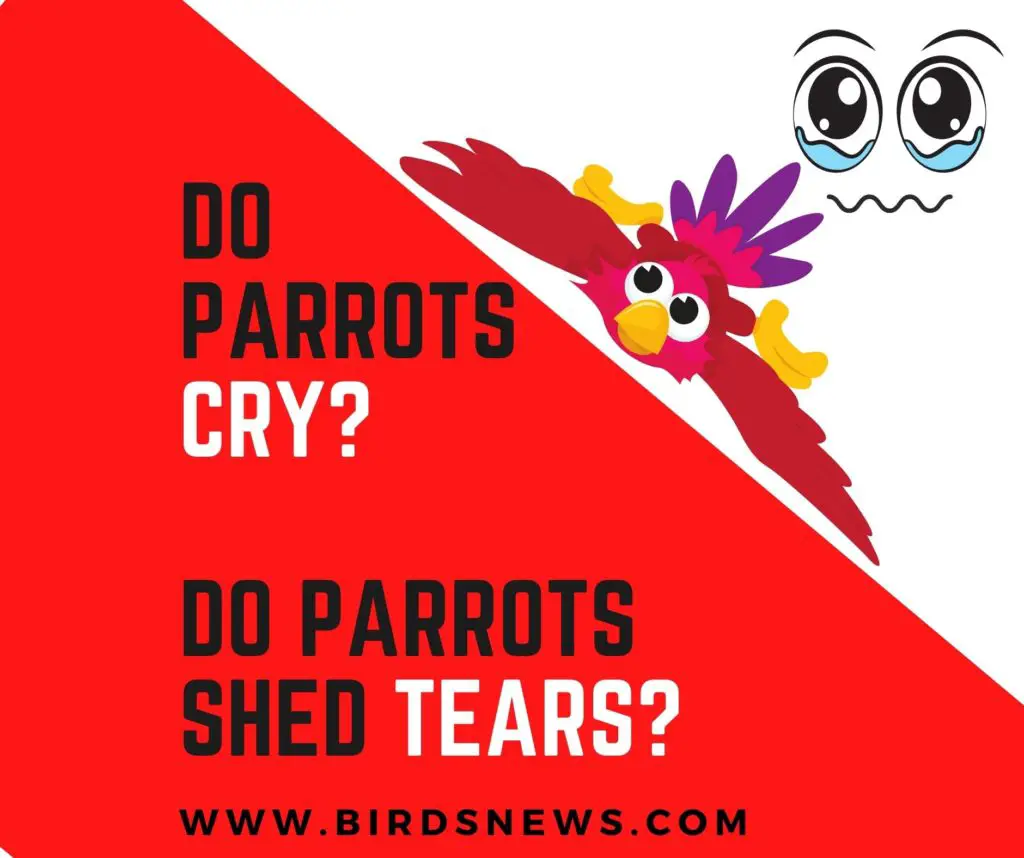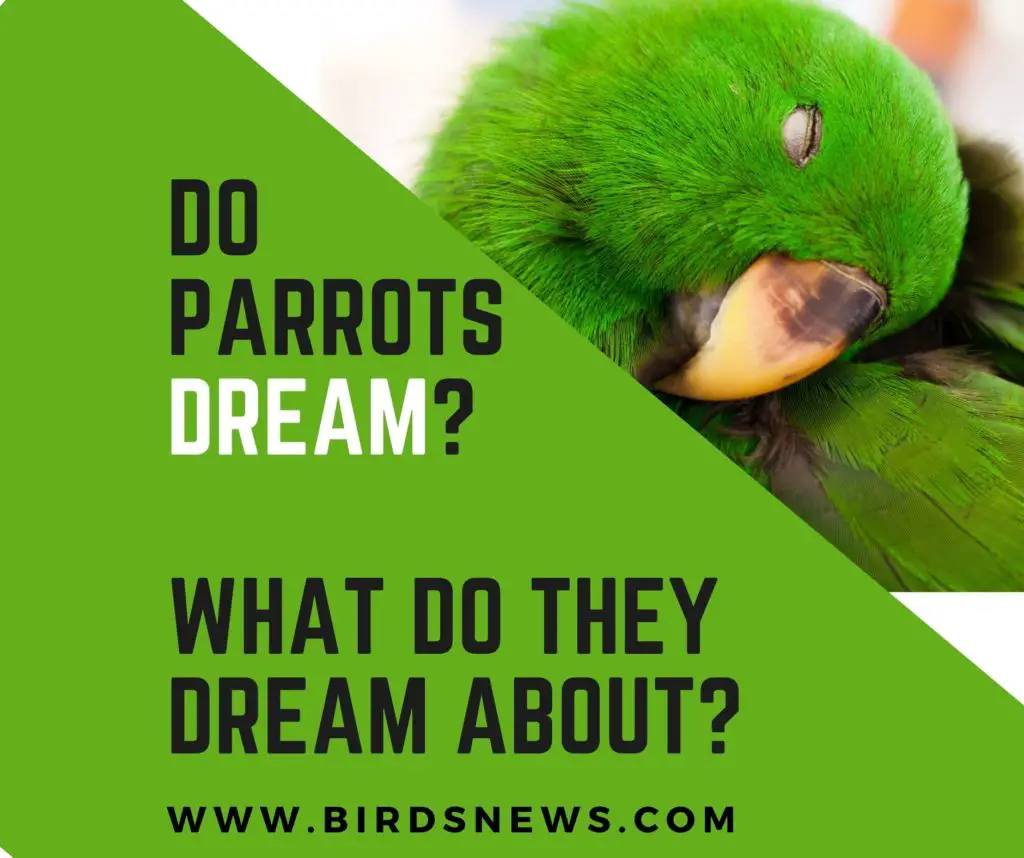Have you ever wondered how parrots clean themselves? What exactly is preening, or is it safe to bathe your parrot?
The two main ways in which parrots clean themselves are by preening and bathing. Powder down is a substance that comes from their feathers that also keeps them clean and dry.
Preening involves cleaning out dirt and parasites while aligning feathers into the optimal orientation for movement.
Preening is essential for parrot’s health. Regular preening ensures each feather is in top condition.
All birds, including parrots, rely on their feathers to forage food sources and fly to safety.
Hence, let’s delve deeper into the ways parrots clean themselves in the wild and captivity and why preening is vital for a parrot.
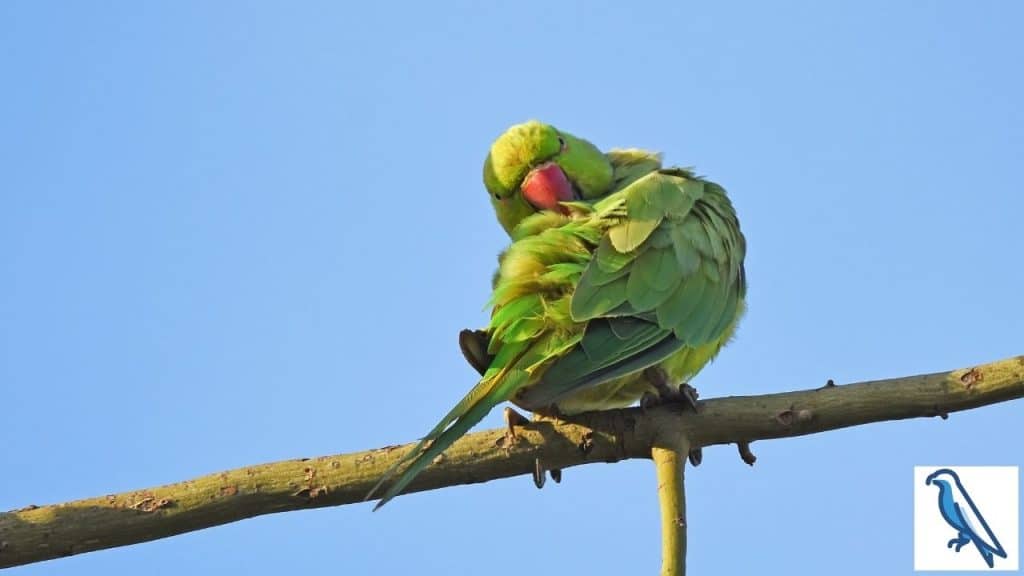
Ways Parrots Clean Themselves
Parrots clean themselves by bathing and preening. Preening is essential for parrots to stay healthy and agile as parasites can make them sick. Fast movement is needed for parrots to escape from predators.
Sunning is another method in which parrots clean themselves. The sun causes parasites deep inside their fluff to fall off or move to an open area to be killed with the beak.
Most parrots enjoy a splash in a bowl of water from time to time. Just be prepared for splashing water in the area.
Wild parrots use rain and other natural water sources for bathing themselves. All parrots, except Amazon parrots, have Uropygial oil glands on top of their tails’ base.
This oil helps them to waterproof and to preen their feathers.This substance can be seen in UV light and brings out the parrot’s colors more.
It is safe to bathe your parrot in lukewarm water and provide heat after they have bathed. But this would be in extreme cases, like if your parrot got mud all over itself somehow.
Alright! Now that you know the various ways parrots keep themselves clean.
Let’s also understand why parrots need to keep themselves clean.
Why Do Parrots Need To Clean Themselves?
Parrots clean themselves instinctively throughout the day.
The drier the climate, the more powder down and dander they produce to stay clean and protected against the elements.
Specific feathers produce this powdery substance that sticks to everything, including dirt on the parrot.
Once the parrot grooms/preens itself or flaps its wings vigorously, the power falls off along with the dirt.
The powder is slightly waterproof to help keep the parrot dry. The healthier the parrot, the more powder is produced. The same goes for active parrots.
Preening is part of healthy grooming and bathing behavior. It helps to place feathers in the correct position.
When one feather is out of place, the parrot is a bit more vulnerable to predators. This is because each feather’s position affects the parrot’s reaction time to jump and fly away.
Many parrot species have a Uropygial oil gland on top of the base of their tails. The function of this oil is to waterproof and protect their feathers in wet and dry environments.
Interesting Further Reading:
- Do Parrots Build Nests? + Do Pet Parrots Need Nest?
- Do Parrots Fart? + Reason Why Parrots Don’t Fart
- Are Parrots Smart? + Are Parrots Intelligent?
Do Parrots Wash Themselves?
Parrots that live in dry areas can’t wait for the rain to start falling. When it starts to rain, they go out to the open and stretch their wings.
They hang upside down to wash, preen themselves in enjoyment. The longer the rain continues, the less interested they become. A quick shower is all they’re looking for.
How Do Parrots Preen Their Feathers?
Parrots preen themselves with their beaks. They pick out dirt and parasites and align their feathers into the optimal position for movement and flight.
They preen several times a day to keep themselves clean and healthy. Parrots also use their feet to position and clean every feather on their body, from the base to the tip.
Stretching or fluffing is another way they align their feathers after they’ve preened a section with their beaks. Stretching provides spaces between the feathers so that they can be groomed and stroked adequately.
Okay! So, parrots preen either with their beaks or by stretching or fluffing. But have you ever wondered why preening is so essential? Let’s gain insights on that part as well.
Why Is Preening Essential For Parrots?
For domesticated parrots, preening is vital for controlling parasites and positioning feathers for easy movement. For wild parrots, it’s necessary for waterproofing and insulation to protect against hot or cold.
Parrots groom their feathers into aerodynamic positions for easier flight and faster acrobatic moves while using less energy during flight. They clean out the dirt stuck to their feathers for the same reason.
They remove body lice that would otherwise spread throughout the entire flock.
Preening assists new feathers to come out properly by removing strong sheaths that cover them.
More attractive and healthier parrots attract a stronger mate and have a better chance of raising healthy, strong chicks.
Male and female parrots preen each other during mating season to get to know each other better. This is known as allopreening.
How Do You Bathe A Parrot?
few easy methods of bathing your parrot.
Use a wet washcloth to gently rub their body and wings until their entire body has been wiped.
It’s just like petting them with the cloth instead of your fingers. If your parrots don’t seem to like the idea, try to talk them through it to settle down.
Fill a spray bottle with lukewarm water, adjust the nozzle to the mist setting, and spray your parrots a few times. It is a quick and easy way to bathe your parrots without the need to open their cages.
Mix hot and cold water in your washbasin to get enough room temperature water in the bottom of the basin, but not so much that the parrot won’t be able to stand in.
An important note is only to use room temperature water for bathing your parrot. If the water is hot, you can burn your parrot.
In cold weather, use something to provide warmth after your parrots have bathed. Some blow dryers can be deadly to parrots. So, don’t blow dry your parrot after they bathe.
In the summer, misting your parrots with a spray bottle is very beneficial. Spray them from above to make it seem more natural.
They’ll shake off the water and dirt by themselves, which is why it’s best to spray your parrots outside.
Don’t bathe your parrot in the evening. They won’t feel comfortable sleeping if you do.
Bathe your parrot in the morning or afternoon instead. Sunshine after a wash is a big treat and essential for removing parasites.
You can use a hot and cold-water mixer (probably your kitchen faucet). To ensure that the water doesn’t get hotter as it flows, open up the hot water until it’s flowing at maximum temperature.
Then open the cold to adjust it to room temperature. Further, allow it to flow for 1 minute at room temperature before allowing your parrot to have a look.
Most parrots love to play with water from a faucet. You have to just monitor the heat level at all times.
By now, you must have gained enough information on the factors like why preening is essential to parrots and how to bathe your pet parrot.
So, let’s also understand whether parrots needed to be bathed frequently.
How Often Should A Parrot Be Bathed?
Parrots should be bathed once or twice a month, depending on how active they are and the air quality inside your house.
You can bathe your parrots more frequently if they are noticeably dirty.
However, bathing your parrots too often can lead to overly dry skin.
If you don’t bathe your parrots from time to time, it can cause them to pluck out their feathers or scratch themselves, leading to open sores or feather loss. It is common for parrots to build up dead skin cells, dirt and dust.
The dirt and dust can stick in the core of their feathers and restrict their range of motion.
This can lead them to cough and sneeze more regularly and cause intense itching depending on how much debris there is on the parrot’s body. Parrots can ingest toxins while preening their feathers if they’re filthy.
Recommended Further Reading:
- Do Parrots Overeat? + What Happens When Parrots Overeat?
- Why Do Parrots Eat Paper? + Is Paper Consumption Dangerous For Parrots?
Parting Thoughts
Wild parrots use rain and other naturally occurring water to bathe themselves. They go out into the open, spread their wings, hang upside down and start preening themselves.
Parrots preen themselves to keep themselves and the flock healthy. By grooming, they remove parasites and dirt from their feathers and align their feathers for easier flight.
It helps to protect them against predators because they’re always in optimal shape. Parrots also stretch and fluff themselves up to align their feathers.
Pet parrots need to be bathed by their owners on occasion. But in most cases, you can use a spray bottle to spray your parrot on the mist setting with lukewarm water.
Use a washcloth that is moist and lukewarm. Rub it all over their body the same way in which you would stroke them.
A mixer tap works well to run room temperature water for your parrot to enjoy in the bathtub or kitchen sink.

Hi, There and Welcome to BirdsNews.com, is here to help you learn and care about pet birds. and this blog is a journal of everything I’ve learned.

